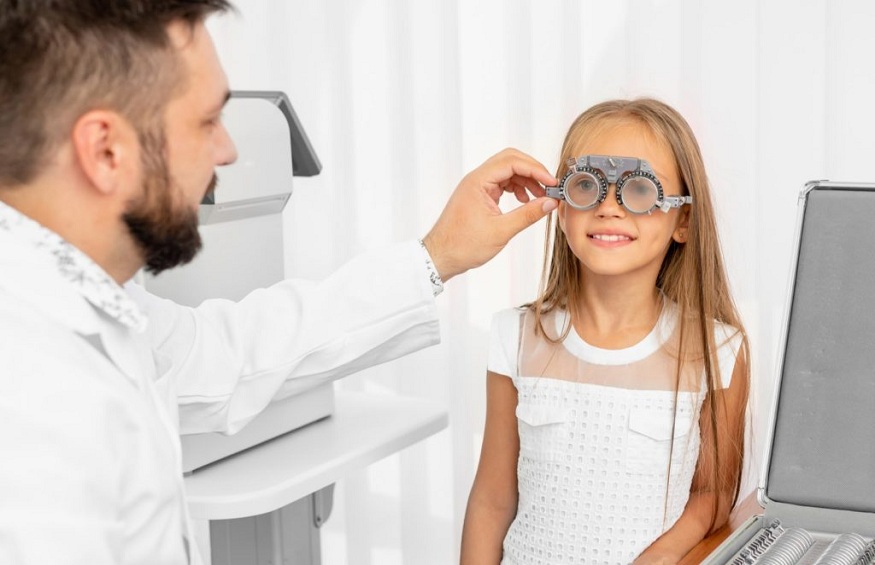Neurological pediatrics is a very interesting specialty that deals with the diagnosis and management of diseases of the nervous system in children up to adolescence. Parents, caregivers, and medical professionals need to know how the growing brain and the nervous system as a whole work and what could potentially go wrong. This is a comprehensive review of things everybody should know about pediatric neurology concerning problems, signs of danger, and new approaches. You will find such understanding valuable whether you are a parent searching for solutions or a healthcare professional trying to expand his/her understanding of this critical area of medicine.
1. Early Brain Development Is Critical
It is most pronounced in the first three years of a human individual’s life. In this period, approximately one million new synapses are generated each second, which in some way is the basis for all learning, behavior, and health. This extraordinary process, known as synaptogenesis, is regulated by both genetic and environmental variables, including diet, interaction, and stimulation. Understanding this vital period of development enables medical practitioners and parents to identify the significance of early intervention when developmental issues appear. The brain’s tremendous flexibility throughout these early years also means that therapeutic interventions can have the greatest impact, potentially modifying the course of numerous neurological diseases.
2. Seizures in Children Are Different from Adults
The challenges and characteristics of childhood seizures are different from other seizures in adult individuals. Clinical manifestations of seizures in children may be subtle absences, essentially of short immobility, to severe tonic-clonic convulsions. However, pediatric seizures differ from other types of seizures since they can slow the child’s development and learning process. The growing brain’s response to seizure activity might differ dramatically from mature brains, necessitating distinct treatment procedures and drugs. Furthermore, certain seizure types occur only in childhood and may resolve naturally as the brain matures, whereas others may suggest more serious underlying disorders that necessitate rapid treatment.
3. Movement Disorders Have Many Causes
Movement disorders in children include a wide spectrum of problems that impair coordination, balance, and motor function. Genetic factors, infections, traumas, and metabolic abnormalities are all potential causes of these illnesses. Understanding the main cause is critical since comparable symptoms may have completely distinct underlying mechanisms that necessitate specific therapies. Cerebral palsy, dystonia, and chorea are three common movement diseases that bring unique diagnostic and therapeutic issues. Modern treatment options frequently include medication, physical therapy, and, in some cases, surgical procedures to assist children attain their highest level of function and independence.
4. Headaches Need Careful Evaluation
Pediatric headaches require a comprehensive examination since they might indicate a variety of underlying disorders, ranging from basic tension headaches to more significant neurological issues. Children sometimes struggle to precisely articulate their symptoms, making diagnosis especially difficult. Sleep patterns, nutrition, stress, and screen time can all influence headache onset in young patients. Understanding the pattern, frequency, and related symptoms allows paediatric neurologist hyderabad specialists and other neurologists to establish whether a headache is primary (as in migraines) or secondary to another condition. This thorough evaluation enables optimal treatment selection and helps to avoid excessive stress while identifying very serious instances that require quick attention.
5. Sleep Disorders Impact Brain Function
Put simply, sleep is critical for a child’s brain, behavior, and health. Neurological sleep disorders are also associated with reduced school performance by a child and behavioral problems besides affecting the child’s quality of life. Several diseases for example sleep apnea and narcolepsy may affect children in a way that they affect adults. Poor sleep can worsen other neurological problems and impair academic performance, emotional management, and social relationships. Understanding the link between sleep and neurological health enables healthcare practitioners to create comprehensive treatment programs that target both nighttime symptoms and daytime functionality, resulting in improved outcomes for young patients.
6. Learning Disabilities Have Neurological Bases
Most times learning difficulties entitle neurological contributors that affect the manner the brain can receive, store, and recall information. Such illnesses as dyslexia, dyscalculia, and attention deficit disorders prove that those are complexities rooted in brain development, not work ethics. Knowledge of the brain’s neurology helps educators adapt interventions to align with a child’s deficits and style of learning instead of going against it. Early detection and adequate support can dramatically enhance educational performance and self-esteem in children with these illnesses, thus parents and educators must spot potential warning signals.
7. Behavioral Changes May Signal Neurological Issues
Abnormal behavior in most cases may be observed to be the first symptoms of a neurological complication in children. Groups of ordinary and passing moody states, anger, or withdrawal can conceal a wide variety of neurological disorders of varying degrees of severity. Knowledge of the proper functioning of the brain and how the brain displays symptoms allows one to differentiate between normal stages of development and probable neurological disorders. This information is vital when selecting the best type of therapy because several behavioral problems have a neurological base that is often more effective to treat than the behavioral issue alone.
8. Genetic Factors Play a Significant Role
There is strong evidence that genetic factors are influential in pediatric neurological conditions since most of the disorders are genetically based. Recent scientific developments which include gene testing have enhanced the analysis of numerous neurological disorders improving diagnosis and treatment. Knowledge of genetic factors increases the capacity to predict risks and make decisions about prevention and management. The same information enables couples to make the right decisions concerning future pregnancies as well as healthcare practitioners to recognize such siblings, who should undergo early screenings and interventions.
9. Nutrition Affects Brain Health
Nutrition for children is one thing that cannot be overemphasized as far as the kids’ brain is concerned. Nutrition also supports abundant, healthy development of all structures in the body including the brain and its functions. Lack of some nutrients in a child’s diet can lead to a plethora of neurological disorders and impaired development. Awareness of the sober role of nutrition empowers the practitioners to have all-embracing management plans for their patients which involve feeding and other practices. The knowledge also helps families avoid or reduce certain neurological disorders by ensuring they make informed decisions about their children’s dietary and supplement needs.
Conclusion
Pediatric neurology and paediatric gastroenterologist can be considered a very complicated and rather interesting field that contributes to the development of knowledge regarding various neurological disorders of children. By comprehending these critical characteristics, you shall enhance the finest outcomes for the children with neurological issues to which assistance is being provided.





